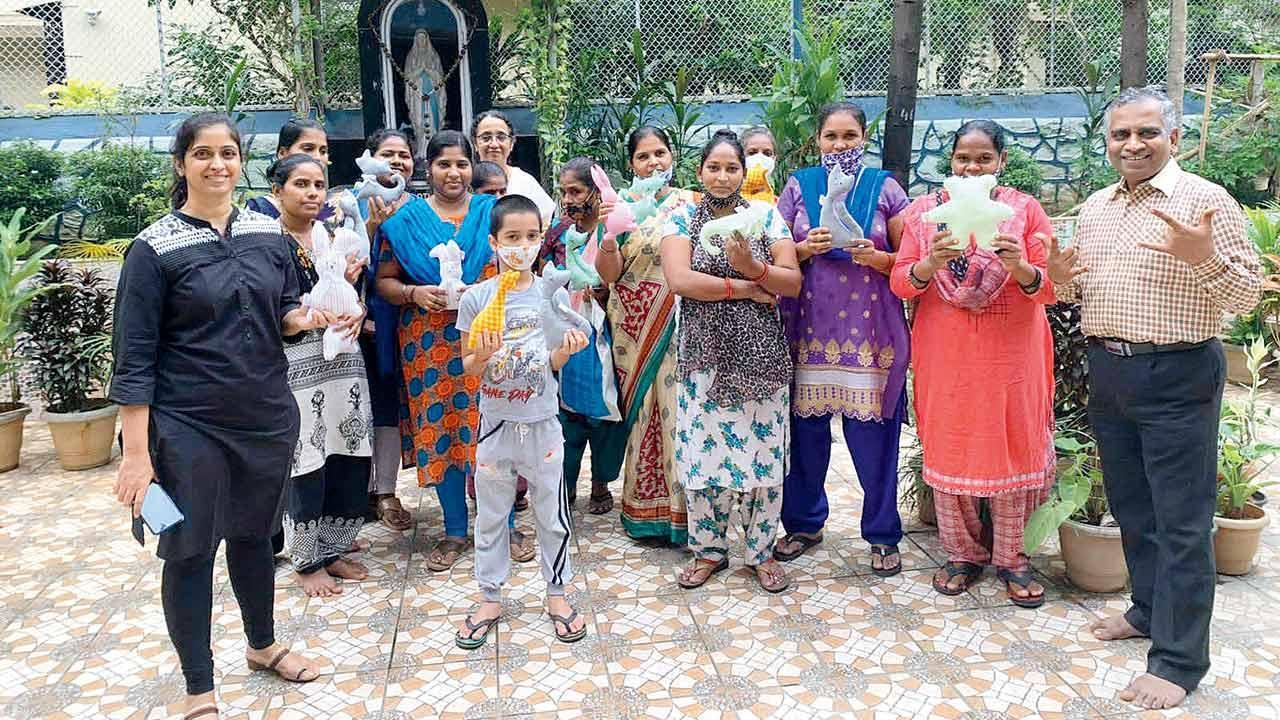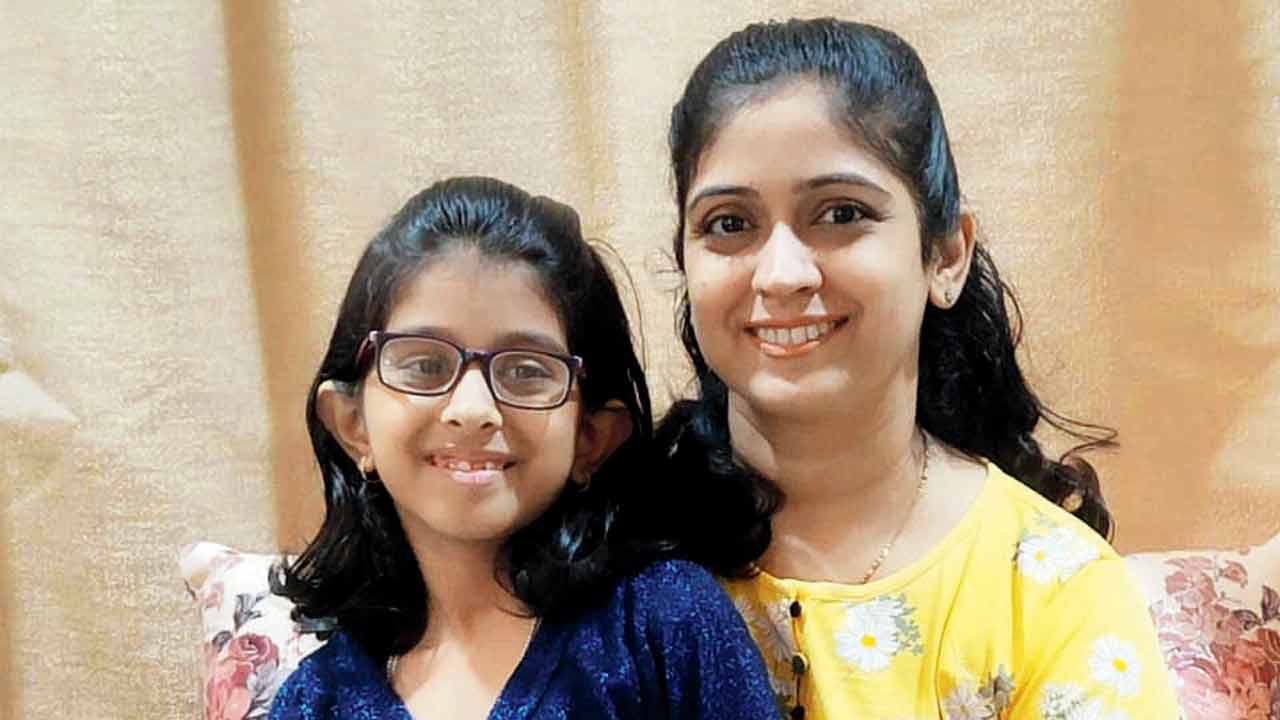It was her daughter’s request for a doll during the lockdown that led Swati Bidwaikar-Pant to start an initiative to make hazard-free toys which has ended up creating jobs for underprivileged women

Swati with a batch of her students showing the cotton dolls they created
MOM, I am getting bored. I want a new doll,” said a 6-year-old Devayani at the beginning of the first lockdown, and these very words led to the inception of The Doll Stories—an initiative under which women are trained to make cotton dolls which are then sold online.
ADVERTISEMENT
Devayani’s request for a doll, which is not an essential item and hence unavailable at that time, did not faze Swati Bidwaikar-Pant who works as regional transformation lead of Asia at NielsenIQ. “I decided to make one at home with whatever rags and scraps I could lay my hands on. I had done a basic soft toy making course in my school days and YouTube was also a big help,” said Swati.
Inception: “During the second lockdown, Devayani wanted me to make a new doll for her. This time it was a better version with some cloth, wool stuffing and wool hair. I also purchased a sewing machine during lockdown as something bigger was starting to take shape in my thoughts. At that time news of people losing jobs due to the lockdown was rampant. Apart from buying local goods, I was thinking about how I could contribute more—and that’s how The Doll Stories was born,” said the Ghansoli resident.

Swati Bidwaikar-Pant with her daughter Devayani and the second doll she made
She added, “I joined hands with NGO IDF and started training underprivileged women. My vision is to bring a trained group of women together to build a brand that will not only lead to employment opportunities for the women but also to make environment and kid friendly toys made out of fabric without any fur or plastic of any kind.”
Nature and kid friendly dolls: The first training session took place at Mahim on August 22 last year. She explained to the women why she insisted on fabric embroidery to make the different features instead of using plastic beads or buttons. “We also teach them to make optimal use of fabric and recycle the small leftover pieces. I still keep experimenting to find alternatives to poly fiber, which is recyclable but not biodegradable, for the stuffing material,” she added.
“I have conducted more than 10 such training sessions in Mahim, Malwani and Thane. However, turning this vision into a reality is not easy as not all have the eye for quality or the desire to take this up professionally. And some, though ambitious, could not due to lack of support from their families,” recalled Swati, adding, “While challenges will exist, we still have a big community that is able to put the skill to use and bring joy to the children around them!”
Personal struggles: Swati said, “It was a learning journey for me, but on a personal front it meant I was not at home with my daughters—Devayani and Sharwani, and my husband. But they never complained. In fact, it is my daughter who came up with the name The Doll Stories.” She added that she also had to inform her employer as she was taking up another job that does not have any conflict of interest, which was well received by her manager.
“You want to know what’s in it for me? I do this outside of my 9-5 job, and the one thing I get is the joy of sharing knowledge and learning about the life stories of these women when we sit together to make the dolls. It has given me a different perspective of life,” the proud mother said.
What’s next: “We could make around 40 commercial quality toys which we are selling through our Instagram page thedollstories.in. I go there only 2-3 Saturdays a month, but the goal is to create young leaders who can take this up full time and turn this dream into a reality,” she concluded.
 Subscribe today by clicking the link and stay updated with the latest news!" Click here!
Subscribe today by clicking the link and stay updated with the latest news!" Click here!







